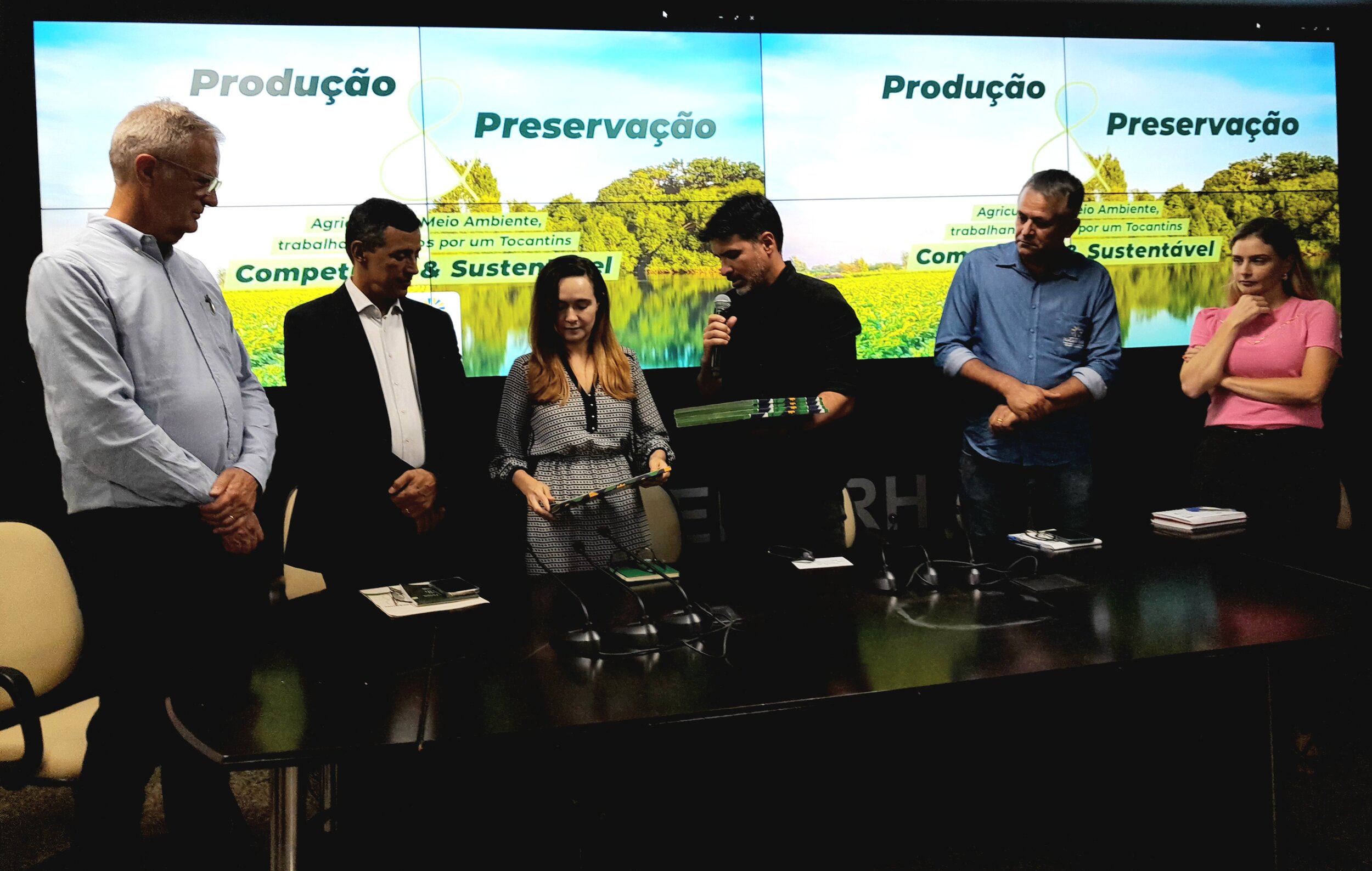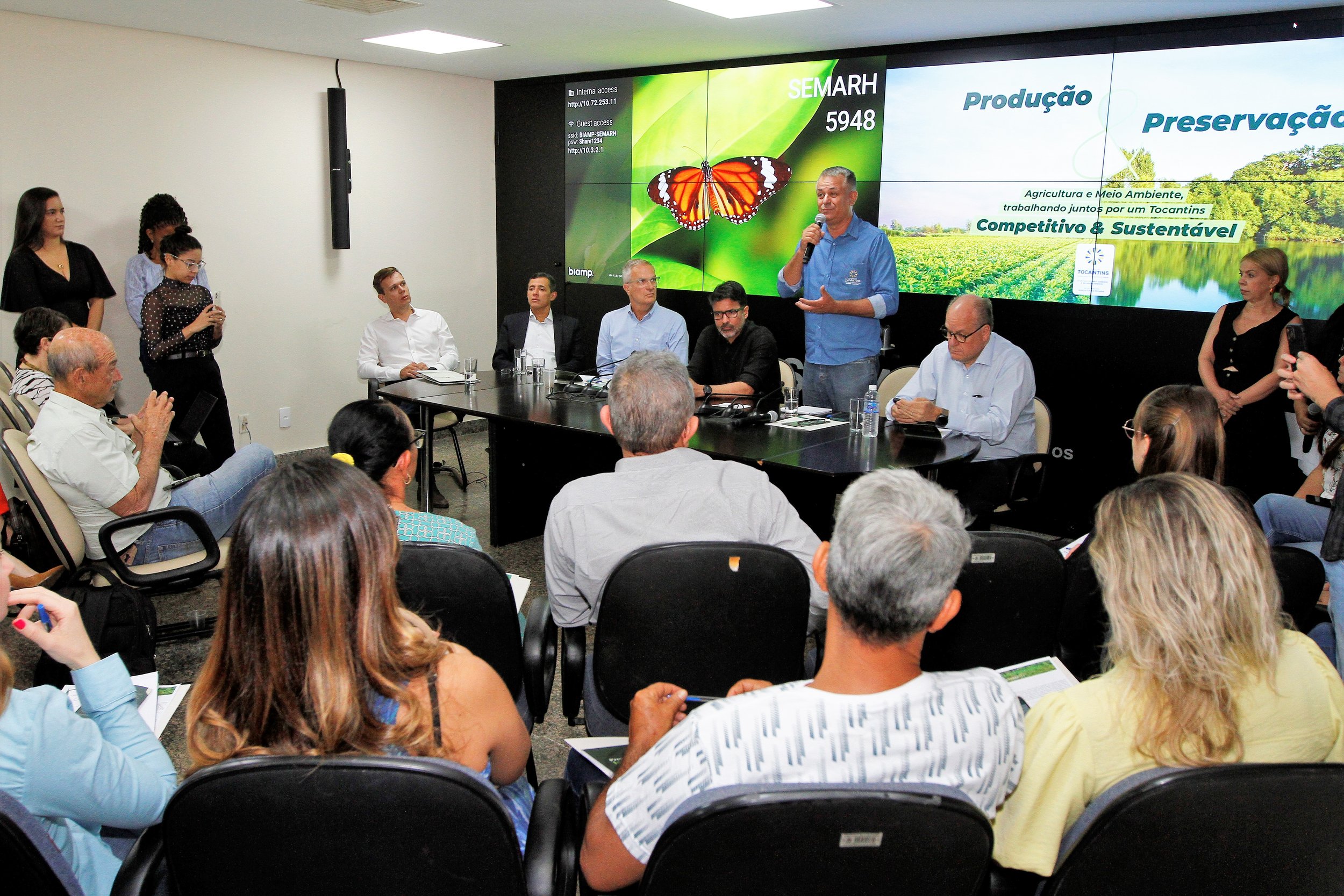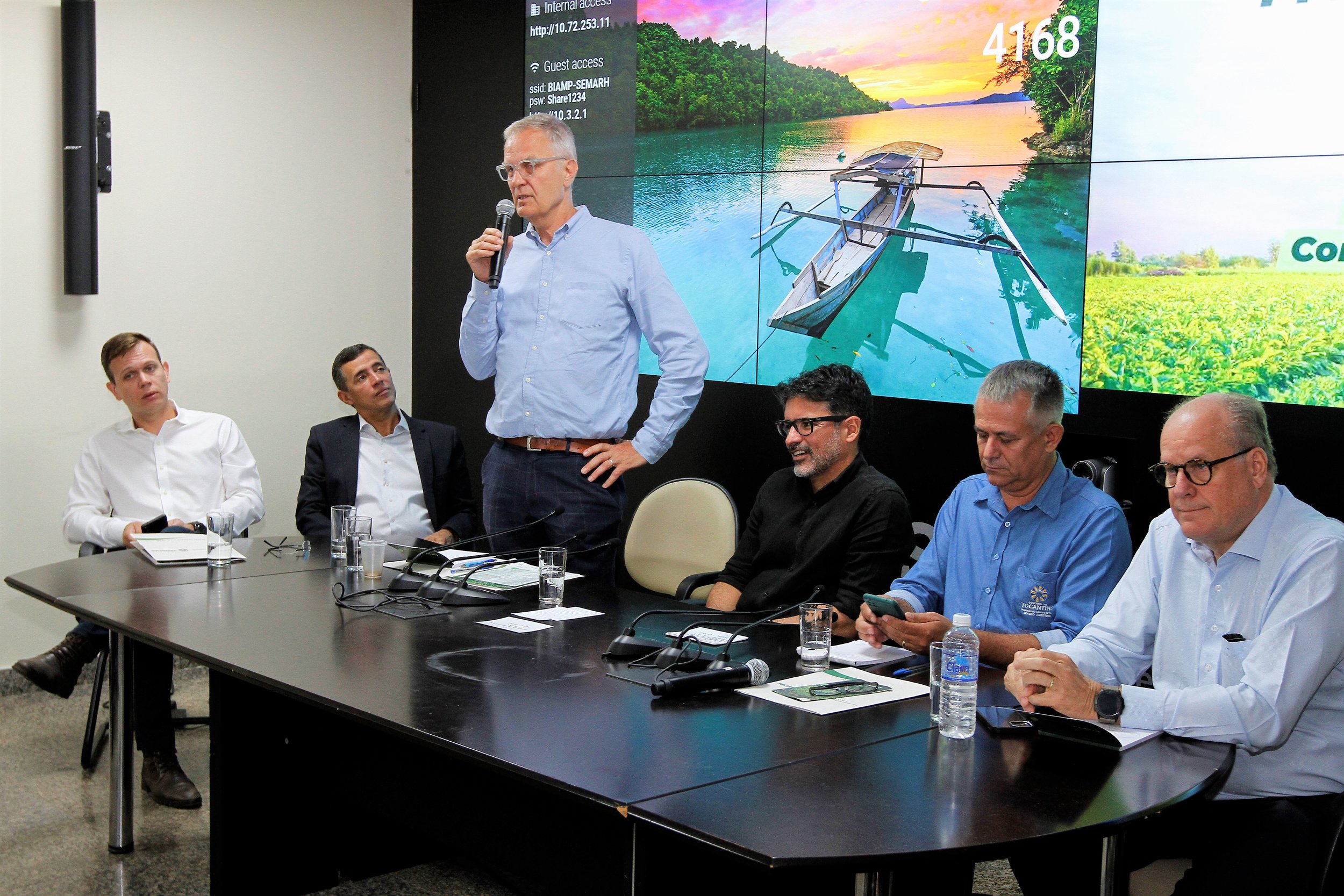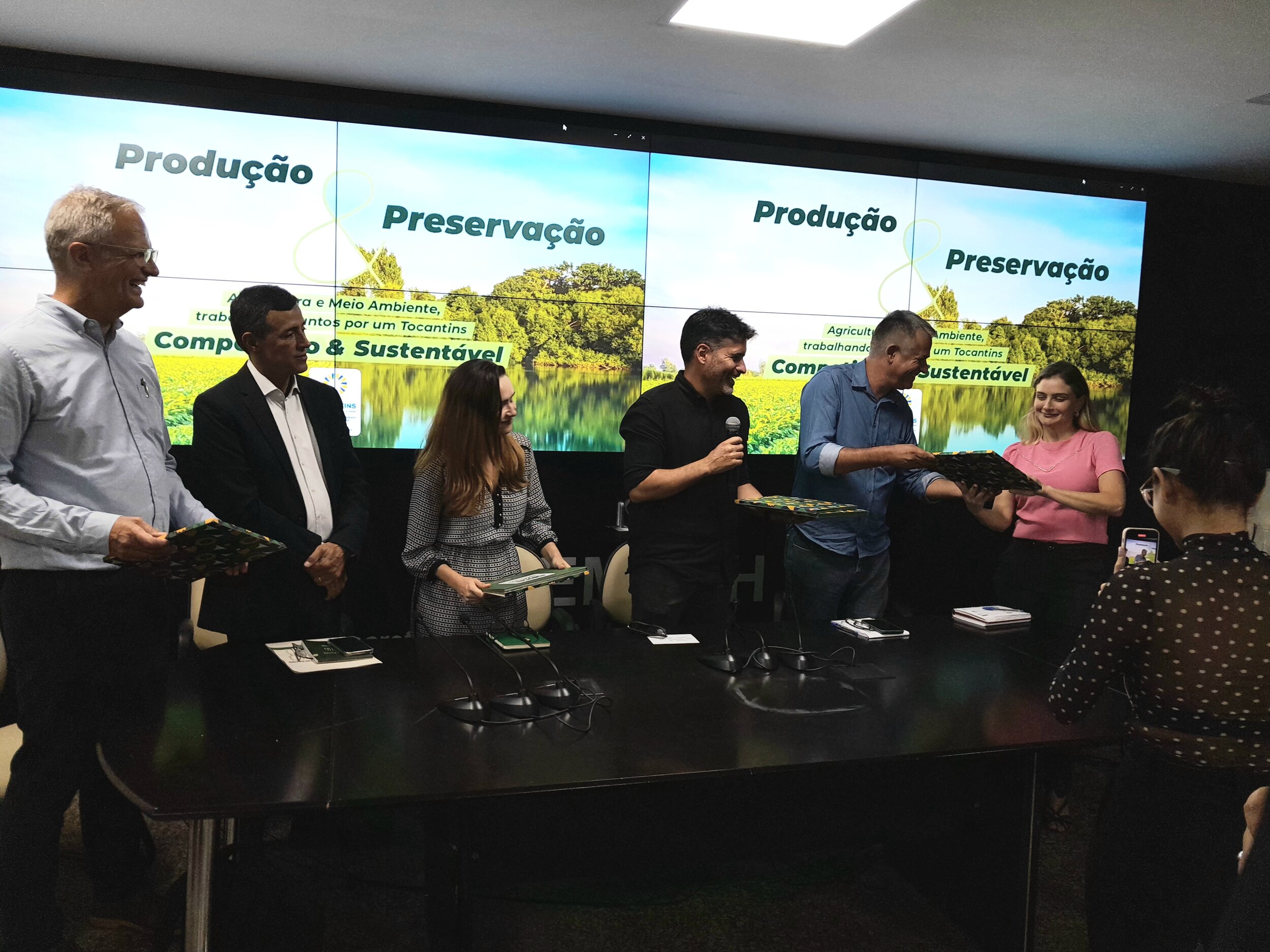Forest Carbon Incentives put Tocantins in the forefont of sustainable agriculture
Innovative public-private partnership to trade and use carbon credits
Credits: Marcel de Paula
An event at the Tocantins State Government offices, on August 3, kicked off the "Forest Carbon Incentive" program, an initiative of the Earth Innovation Institute (EII) with Produzindo Certo and Taxo Agroambiental, in a partnership with the Tocantins State Government and support from the Land Innovation Fund. The goal is to foster sustainable agricultural practices by using part of the revenue from sales of Tocantins' jurisdictional carbon credits to finance green business opportunities, bringing the state's soy production in line with the international market’s environmental and climate requirements.
This public-private partnership makes Tocantins a leading player in trading and using forest carbon credits to promote sustainable agriculture. The state is the first in the country to sign an agreement to sell forest carbon emission reductions at the state level through the "jurisdictional REDD+" program, and the second jurisdiction in the world to sign this type of agreement. Funds generated from the state's sale of carbon credits will be used to promote sustainable development by fostering good practices in agriculture, as well as benefiting indigenous peoples, traditional communities, and family farmers in the region.
"We want to lay the groundwork to develop an innovation landscape for agricultural sustainability by promoting actions, initiatives, or tools that enable transformation in the field. Coordinated by the Earth Innovation Institute with the support of several public and private partners, the project is an unprecedented opportunity to recognize and value farmers committed to low-carbon agricultural practices", explains Ashley Valle, director of the Land Innovation Fund.
The event was attended by government authorities, farmers, representatives of partner institutions and associations from the production sector. The agenda covered challenges, definitions, alliances, and business opportunities for low-carbon agriculture, to make Tocantins a leader in connecting production with environmental conservation.
"The program reaffirms the state of Tocantins’ commitment to environmental concerns and the development of sustainable farming. The use of resources from the Forest Carbon Incentive project will be discussed with the many players involved in the initiative. We want outstanding results for both production and environmental conservation," says Marcello Lelis, the state's Secretary for the Environment and Water Resources.
The initiative aims to engage farmers' associations, rural extension agencies, research and financial institutions to design the agriculture sub-program of Tocantins' Jurisdictional REDD+ Program's benefit-sharing strategy. The sub-programs aim to direct REDD+ funds properly to each type of program beneficiaries.
"Our vision is to benefit farmers who are reducing emissions by conserving native vegetation or recovering degraded areas. It's not enough to demand that they do the right thing. We need to offer market incentives to align their farming practices with environmental conservation," according the Earth Innovation Institute’s director, Daniel Nepstad.
Forest Carbon Incentive:
One of the project's proposed activities is the participatory definition of benefits and incentives for low-carbon production, such as easier access and better conditions for existing credit lines and programs, like ABC+ (loans for low-carbon agriculture) and the green CRA (loans to be repaid after sale of the harvest). The initiative also aims to help the state negotiate a compliance plan for the new European Union Deforestation Regulation.
To enable these measures, the project will use an application that calculates forest carbon stocks and flows on the region’s soy farms. As a pioneer in technical assistance on sustainability, Produzindo Certo will be responsible for coordinating field visits to farmers and collaborating with the EII team to propose incentives for farmers that will be implemented on selected farms during the project's pilot phase. Taxo Agroambiental will use its stakeholder network to get more of them involved in the project.
The project's long-term impact will be more forest cover on Tocantins' soy farms and a faster transition to low-carbon, zero conversion soy production in the state.
Jurisdictional REDD+:
The Forest Carbon Incentive project is linked to a larger EII initiative to support the state of Tocantins in designing a jurisdictional REDD+ program focused on the fulfillment of social safeguards, benefit sharing, and the measured, verified emission reductions the state already achieved from 2016-2020, to be able to sell credits. Overall, Tocantins already has around 50 million tons of CO² to be verified and traded.





